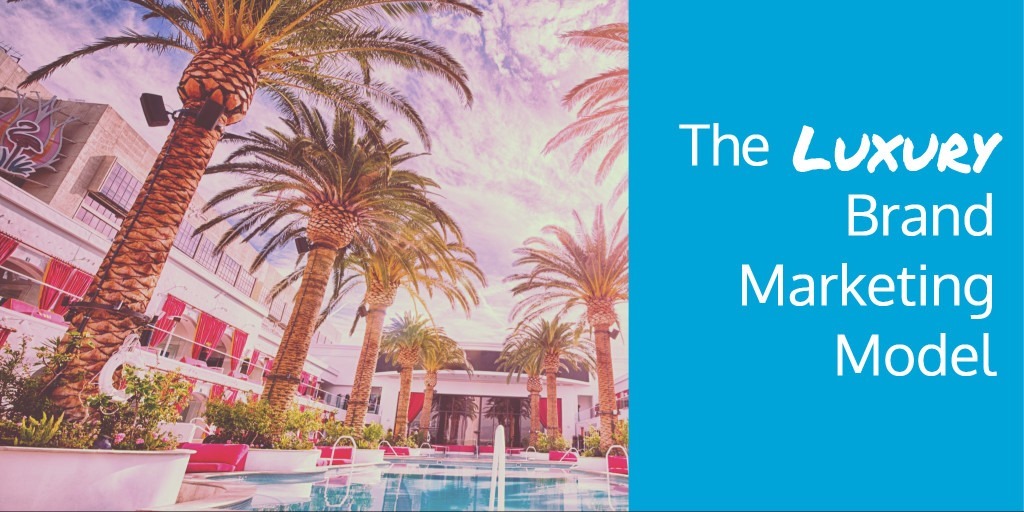
"Ultra-luxury products are differentiated from ordinary products through unique aesthetics. An explanation of the quality is best described through omission of words followed by physical evidence and presentation. The brand’s identity should be easily confirmed through a unique sensory experience.” - Adriaan Brits, Luxury Brand Marketing: The globalization of luxury brand cults
The quotation mentioned above by Adriaan Brits explains the difference between conventional products and highly-desirable products. It also touches on the fact that luxury products need to be marketed in such a way that their unique aesthetic characteristics and value are emphasised as part of the luxury brand marketer's marketing strategy as opposed to the way mass brands are marketed.
Additionally, it is important to note that the traditional marketing model does not attract the modern generation of consumers. Danziger's latest report, "Wealth Wave: The Millennials & Their Luxury Aspirations" found that the "millennial generation is sceptical of luxury brands... This generation of well-educated young people, there is a real danger that luxury is going to be perceived simply as a marketing concept... not something that has real meaning or resonance to their lives."
Therefore, to ensure the longevity of luxury brands in the retail industry, it is vital for brand marketers to forgo the traditional marketing model and work on ways to persuade the millennial (or current) generation that luxury brands have the potential to add value to their lives. Otherwise, their marketing efforts are going to fail, and the companies linked to the luxury brands in question run the risk of going out of business.
Luxury Brand Marketing: The Innovative Marketing Model
The importance of forsaking the traditional marketing model to create and execute an exciting, innovative luxury brand marketing strategy has been emphasised above. However, before we look at the reason why marketers should change their marketing strategy, let’s look at what the luxury brand marketing model should look like:
Francine Espinoza Petersen commented in 2014 that the marketers who promote luxury brands have concluded that experience is an essential part of their marketing model. However, marketers only have experience designing experiential campaigns for mass brands. Furthermore, Petersen acknowledged that "luxury brands are an entirely different proposition and require a very specific approach to brand management and marketing."
Therefore, let’s take a look at what a luxury brand marketing model should consist of (as opposed to the traditional marketing model):
- Luxury goods need to stand on their own. Each brand should be marketed as a unique product. It should not be positioned in relation to a competing brand.
- Luxury brands should facilitate dreams. Therefore, the brand should not pander to the consumer’s wants and needs. The brand needs to set the standard for the consumer’s aspirations.
- Luxury brands should not only cater for a specific target audience. They should have a global reach. Therefore, marketers should consider using the influencer marketing concept carefully as it will reduce the luxury brand’s scope and narrow it down to a specific target audience.
Reasons Why Luxury Brand Marketers Should Turn The Traditional Marketing Model On Its Head
There are many reasons or justifications why the traditional marketing model cannot work for luxury brand marketing. Here are a few of the more important reasons:
A Luxury Brand Is Not A Basic Need
It is evident from the discussion mentioned above, that the traditional marketing model where the brand listens to what the consumer wants and positions itself so that it is relevant to its target audience. In other words, the potential customer is not expected to change; the brand evolves to meet its intended audience’s needs.
This marketing model cannot and does not work for luxury brands as they are not considered part of the essential living expenses. Therefore, as stated above, the luxury brand needs to establish itself as a desirable dream, something to attain to be considered truly successful.
A Luxury Brand Requires Individualised, Not Mass Marketing
The section on what the luxury brand marketing model should look like states that each luxury brand is an individual, unique brand. Therefore; its marketing strategy and campaigns should consist of content that provides the potential customer with a unique, individualised experience. It should not compare itself to other luxury brands, even though they are in the same niche. The consumer should desire the brand for what it is, not for how much better it is than its competitors.
Final Thoughts
The stated differences between the traditional, mass marketing model and the single, luxury brand marketing model are slight, yet profoundly different. A brand marketing strategist who grasps these subtle but profound differences has the potential and toolset to set the label on a marketing trajectory that will propel the brand into the desired position where it is seen as the icon of success.
* Adapted lead image: ![]() Public Domain, pixabay.com via getstencil.com
Public Domain, pixabay.com via getstencil.com

